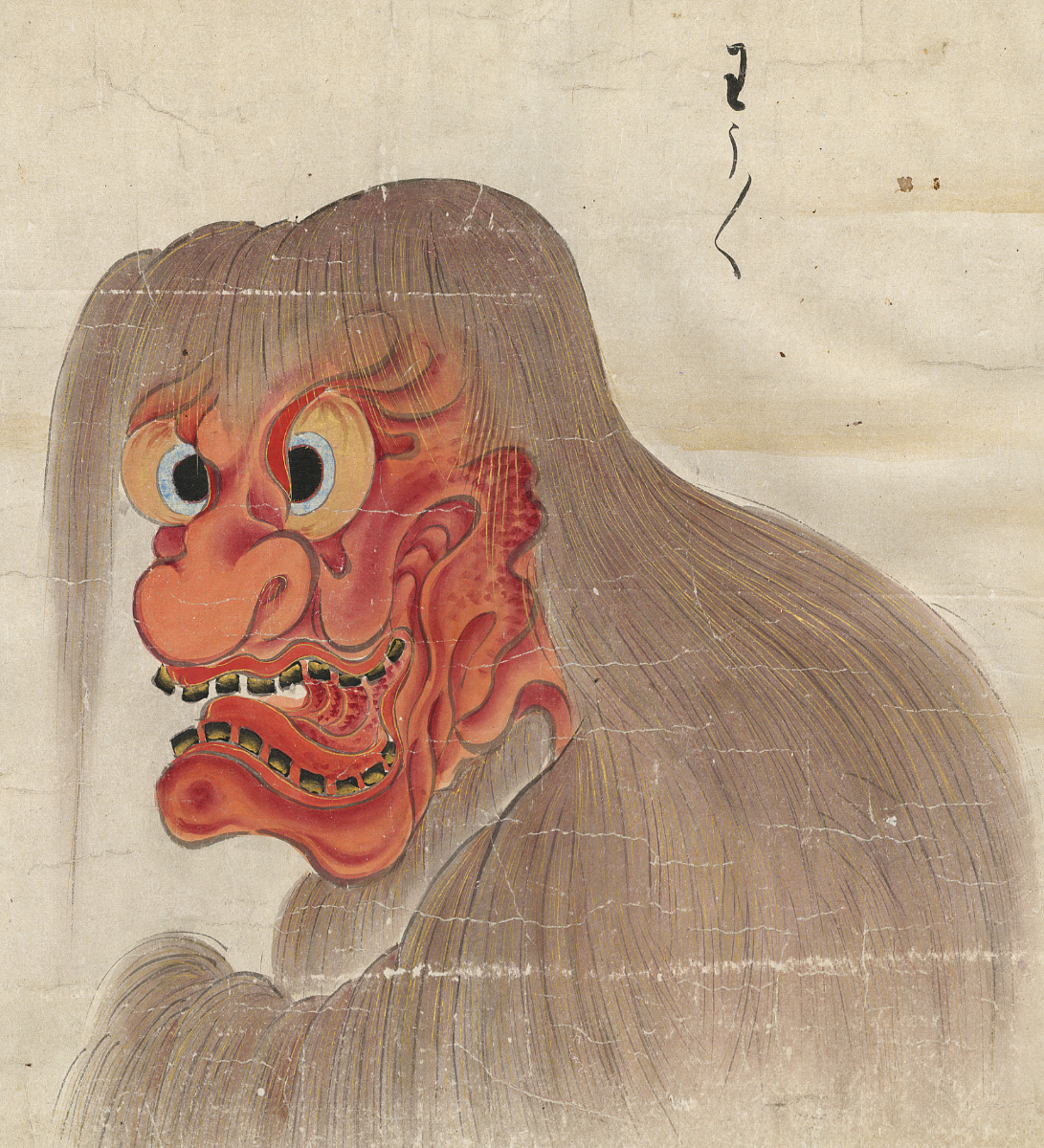Ouni looks like an ugly old woman with an angry face and a body covered in long, black hair. She is a kind of yamauba, or mountain hag. She lives deep in the mountains, away from civilization, and only occasionally appears before humans. Unlike most yamauba, ouni are friendly towards humans who treat them kindly. They occasionally visit rural houses or mountain huts late at night. When this happens, the ouni asks the owners of the house to give her free lodging and a meal for the night. If they are kind and invite her in, during the night she spins an enormous amount of thread for the family and then vanishes without a trace. Ouni’s name comes from the Japanese word for ramie, a fibrous plant that is used to make thread, and peat, the rotten muck found in swamps that comes from rotting plant matter. The first part of her name comes from the thread which she spins at night, usually in the form of ramie, as well as the long, black hair which covers her body and resembles thick threads. The second part refers to her filthy, black, hairy body, which makes her look like she is covered in dead vegetation.
| Alias Ouni (苧うに) |
| Real Names/Alt Names “Ramie peat”; Alt: Wauwau (わうわう) |
| Characteristics Yōkai, Scientific Revolution, Public Domain |
| Creators/Key Contributors ○ |
| First Appearance Japanese folklore |
| First Publisher ○ |
| Appearance List Bakemono no e (化物之繪, “Illustrations of Supernatural Creatures”, Edo Period), Gazu Hyakki Yagyō (画図百鬼夜行, “The Illustrated Night Parade of a Hundred Demons” or The Illustrated Demon Horde’s Night Parade) Vol. 3 “Wind” |
| Sample Read Bakemono no e (Edo Period) [Internet Archive] |
| Description Ouni looks like an ugly old woman with an angry face and a body covered in long, black hair. She is a kind of yamauba, or mountain hag. She lives deep in the mountains, away from civilization, and only occasionally appears before humans. Unlike most yamauba, ouni are friendly towards humans who treat them kindly. They occasionally visit rural houses or mountain huts late at night. When this happens, the ouni asks the owners of the house to give her free lodging and a meal for the night. If they are kind and invite her in, during the night she spins an enormous amount of thread for the family and then vanishes without a trace. Ouni’s name comes from the Japanese word for ramie, a fibrous plant that is used to make thread, and peat, the rotten muck found in swamps that comes from rotting plant matter. The first part of her name comes from the thread which she spins at night, usually in the form of ramie, as well as the long, black hair which covers her body and resembles thick threads. The second part refers to her filthy, black, hairy body, which makes her look like she is covered in dead vegetation. |
| Source Ouni – Yokai.com |

